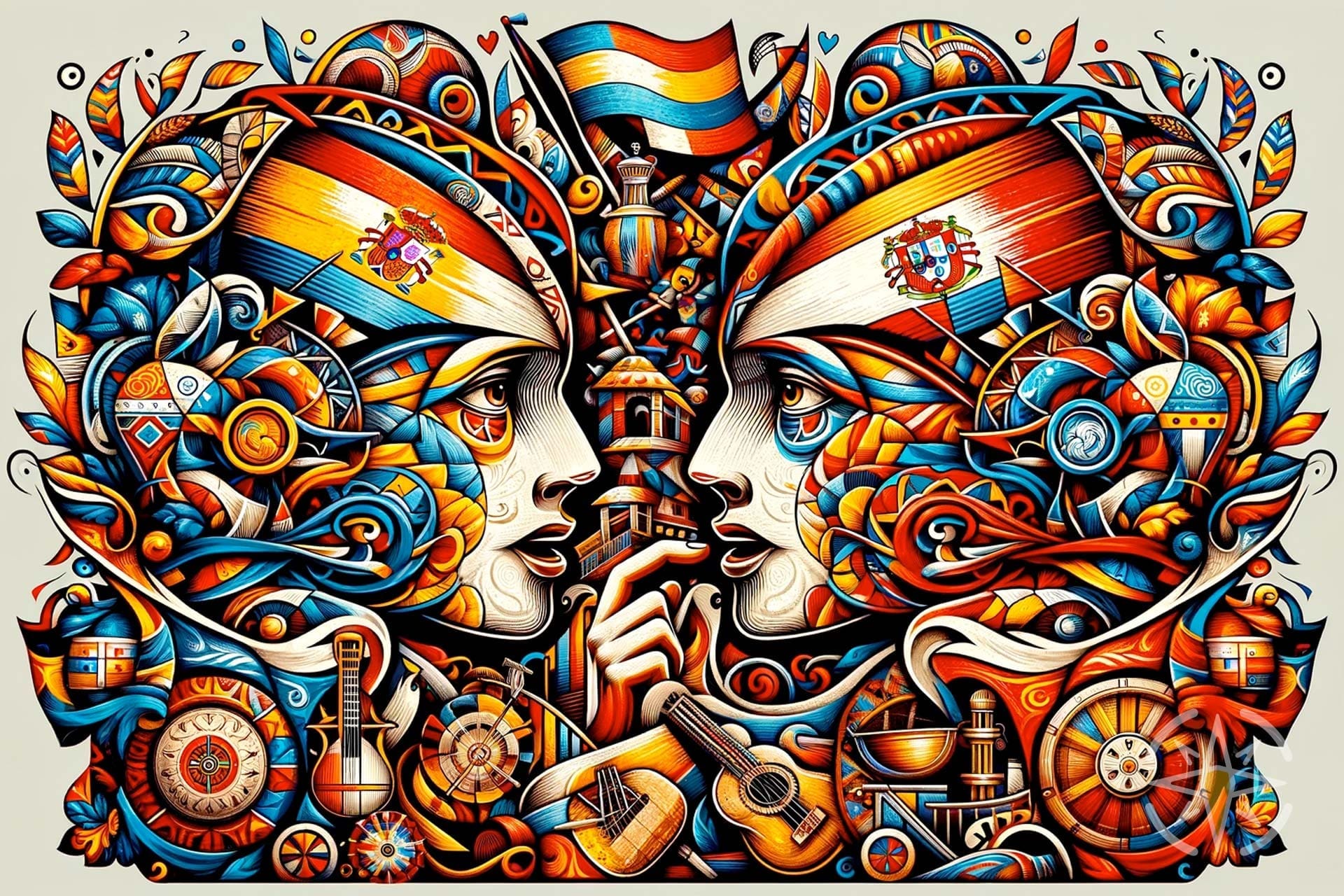When choosing Spanish Galicia as my travel destination, I expected to find a truly unique place. After years of living in the south, I often looked at the map of the northernmost reaches of the Iberian Peninsula, hoping that one day I would get to go there. I had heard various accounts, even from my Andalusian friends, about the cold and winds up there, but also about the lush greenery, tranquility, and stunning beauty that seemed to permeate the entire region. Finally, my partner and I took the helm of our 'home on a wheel' and headed north, immersing ourselves in bays, islands, rivers, forests, villages, towns, breathtaking beaches, and the serenity of it all... as well as the languages of northern Iberia.
I write about the places I've visited in Galicia under the main menu tab - Galicia. (I'll be adding more regularly, I have quite a few pins, but... time is running short...)
The people of Galicia speak the Galician dialect, which sounds like a blend of Spanish and Portuguese languages...
Galego, the source of the Portuguese language
Język galicyjski, znany również jako “galego”, ma swoje korzenie w IX wieku. Powstał on jako konsekwencja ewolucji łaciny, która rozprzestrzeniła się w regionie Gallaecii podbitej przez Rzymian, na bazie istniejących wówczas języków celtyckich i ich odmian. Na jego kształtowanie się w późniejszych latach wpłynęły języki różnych ludów, które osiedlały się na terytorium Galicji, w tym germańskich Swebów, Wizygotów, a w mniejszym zakresie również Arabów.
During the Middle Ages, from the 12th to the 14th century, the Galician language was regarded as the language of the educated and served as a kind of literary language for the entire Christian part of the Iberian Peninsula. During this period, various literary works were produced in Galician, including the poems of King Alfonso X the Wise. Due to political changes, such as the separation of the County of Portucale from Galicia, the Portuguese language emerged from it, and it began to develop independently.
Modern Galician has been heavily influenced by Spanish (Castilian), and its use has undergone a destructive process of displacement by the Castilian language, which intensified during the Franco dictatorship. However, since the 1980s, when the Parliament of Galicia passed the Law of Normalization of the Galician Language, efforts have been made to protect and promote it.
It is estimated that 88% of the residents of Galicia use the Galician language regularly or occasionally, and a remarkable 94% of the population in this region understands it.
It's interesting to note that one of the oldest borders in Europe divides populations that, after 800 years of separation, can still engage in conversation without much effort...
While traveling through Galicia, it immediately becomes evident how deeply ingrained the Galician language is in everyday life. Its sound can be heard everywhere – from street conversations to store announcements, advertisements, and signs. Its presence reflects the strong attachment of the locals to their roots, which is quite remarkable in this era of globalization. There's something special about the attempts at communication, even if it requires gestures and grappling with new words. These moments, though sometimes amusing and filled with misunderstandings, capture the essence of traveling, experiencing diversity, and discovering new cultures.
In Galicia, and beyond, even if our knowledge of the prevailing language in a particular area is limited to a few basic phrases, it's these very moments when we step out of our comfort zone that leave a lasting impression on our memory.
🎵 Some music in Portuguese, European language:
🎵 And here is an example of a galego:


Leave a comment, ask a question...